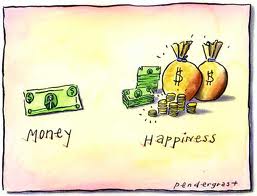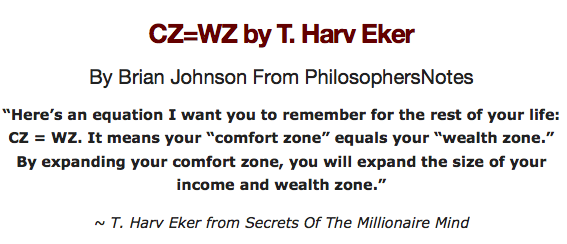Ashton Fourie proposes a fallacy:
I think it really doesn’t matter how you define retirement. What matters is what you are doing, and whether it is what you love doing.
Am I retired? Well, I don’t really care. I can’t see that I would want to be doing any less of what I’m doing now when I’m 70, or 80, or 120 (which is how old I want to become to finish all the work I still want to do)
It doesn’t feel like a fallacy: the idea to make money doing what you love doing has to be ‘right’, right?
 To find out, let’s revisit the famous parable of the Fisherman and The Investment Banker:
To find out, let’s revisit the famous parable of the Fisherman and The Investment Banker:
In case you don’t remember the story [full parable + commentary here], it’s about a fisherman who meets a big time Wall Street investment banking-type who asks what he does.
The fisherman says that he fishes for just a few hours each day then spends the rest of his time with his family and playing cards with his friends.
The Investment Banker then goes into an analysis of how the fisherman could work hard for a few years to build up a big fish-wholesaling business so that he can finally retire and … do what?
Spend the rest of his time with his family and playing cards with his friends!
What this story proposes is that you simply enjoy your life now, and don’t worry about the money.
Well, that’s all well and good until you find that you can no longer fish …
Living from the fruits (actually, fish) of your own labor – or, selling your labor and/or time as Ashton does – are very dangerous ways to live. You may love what you do for now, but one day you may (a) no longer love what you do and/or (b) be ABLE to do what you love to do.
What does a concert pianist with arthritis do?
I enjoyed working for a Fortune 100 company, but after 6 years I’d had enough.
I enjoyed starting my business from scratch, but after a few years I couldn’t wait to sell out.
I’m sure that I’d love fishing, consulting, public speaking, venture capitalizing, whatever …
…. but, after a few years, I’d want to do something else instead.
Unfortunately, my Life’s Purpose is all about traveling physically, mentally, spiritually. It’s ‘unfortunate’ because the life that I have chosen for myself takes a lot of time and money 🙁
But, reaching my Number has made living it possible 🙂









